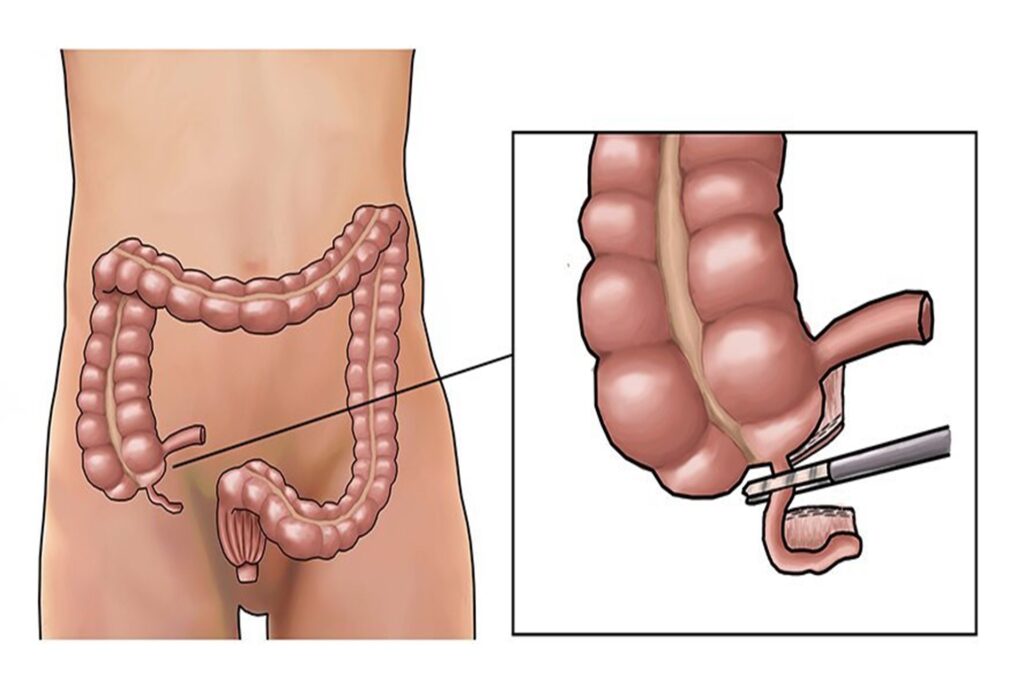
Overview:
Appendectomy is the surgical removal of the appendix, a small pouch attached to the large intestine. This procedure is commonly performed to treat appendicitis, a condition where the appendix becomes inflamed and infected, potentially leading to rupture.
Causes:
Appendicitis occurs when the appendix is blocked due to hardened stool, infections, or swelling, leading to bacterial overgrowth and inflammation. If left untreated, it can cause complications like perforation and peritonitis.
Symptoms Indicating Appendectomy:
Severe pain in the lower right abdomen, nausea, vomiting, fever, loss of appetite, and tenderness in the abdominal area are common symptoms of appendicitis, requiring immediate medical attention.
Treatment:
Appendectomy can be performed through laparoscopic (minimally invasive) or open surgery, depending on the severity of the infection. Postoperative care includes pain management, antibiotics, and a gradual return to normal activities with dietary precautions.
Precautions:
Patients should avoid strenuous activities, follow a soft diet, and maintain proper wound care to prevent infections. Any unusual symptoms, such as fever or persistent pain, should be reported to a doctor.
Prevention:
Although appendicitis cannot always be prevented, a high-fiber diet and good hydration may reduce the risk of blockages leading to inflammation.
For expert surgical care in appendectomy, visit The KDM Hospital in Lucknow, offering ambulance services, budget-friendly care, Ayushman card acceptance, and 24/7 doctor availability.
